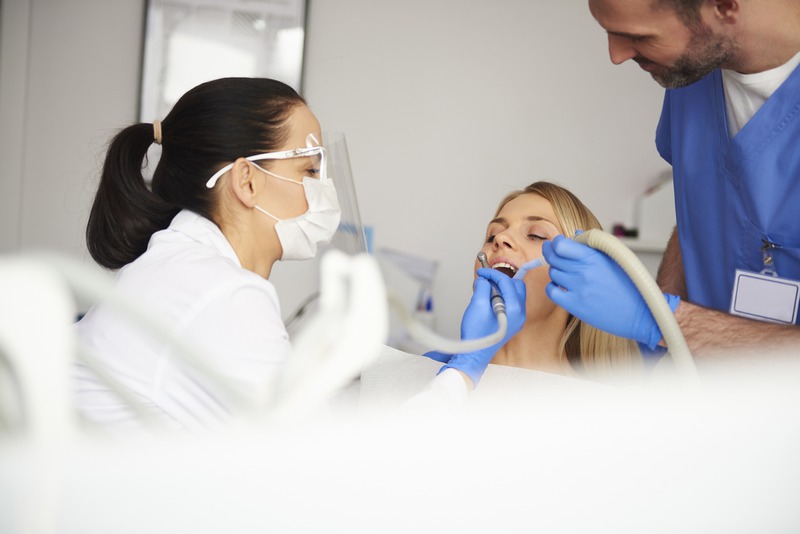Dealing with a dental emergency can be a nerve-wracking experience. Whether it’s the sudden jolt of a toothache or an unexpected incident that results in a chipped tooth, knowing how to seek immediate relief is essential. This article will guide you through managing dental emergencies in an understandable and effective way.
Recognizing a Dental Emergency
First off, it’s crucial to identify what constitutes a dental emergency. Not every dental issue requires immediate attention, but certain situations do. Here’s a quick list of circumstances where handling your dental emergencies is necessary:
-
Severe toothache or pain that doesn’t subside
-
Cracked or broken tooth causing pain
-
Knocked-out tooth due to injury
-
Bleeding that won’t stop
-
Swelling or abscess in your mouth
Knowing the symptoms of a dental emergency can prepare you to act quickly and minimize long-term damage or discomfort.
Immediate Home Remedies for Pain Relief
When you’re in pain, the priority is finding some relief. Before you can get to a dentist, there are a few DIY remedies that might help ease the discomfort:
-
Rinse with warm salt water: This can clean your mouth and reduce swelling.
-
Use a cold compress: Applying ice might help reduce swelling and numb the area.
-
Over-the-counter pain relief: Medications like ibuprofen can help manage pain temporarily.
These remedies are a stopgap solution, though. No at-home treatment can replace professional dental care.
Contacting an Emergency Dentist
Once you’ve taken immediate action, contacting a dental professional is crucial as soon as possible. It’s good to have a plan to know which dentist to call when an emergency strikes. Keep the following points in mind when reaching out:
-
Have your symptoms and medical history ready to discuss.
-
Be clear about the nature of your emergency.
-
Ask about the steps you should take before arriving at the clinic.
Communicating effectively with the dental staff is key to receiving timely and appropriate care.
Handling Toothaches
Toothaches can be intensely painful and often require immediate attention. The causes may range from cavities to possible infections. Seeking urgent help can make the process less stressful, both physically and financially. While waiting for your appointment, try to avoid foods that are too hot, cold, or sugary, as these can exacerbate the pain. Remember, a toothache that persists should never be ignored.
Dealing with a Knocked-Out Tooth
If a tooth gets knocked out, time is of the essence. Here’s what you can do to improve the likelihood of saving it:
-
Handle the tooth carefully by the crown without touching the root.
-
Rinse the tooth gently with water if dirty, but do not scrub or remove any attached tissue.
-
Try to place the tooth back into its socket, if possible.
-
Keep the tooth moist by storing it in milk if you can’t place it back.
-
Visit a dentist within 30 minutes of the accident.
Following these steps can make a big difference in saving your tooth.
Managing a Cracked or Broken Tooth
A cracked or broken tooth can cause significant pain and requires urgent attention. Depending on the severity, the treatment could range from a dental filling to a root canal. Until you can see a dentist, rinse your mouth with warm water and keep the broken piece if possible. Covering it with dental wax also prevents sharp edges from irritating your mouth.
If you are in such a predicament, seek a Dublin dentist who offers emergency services to ensure you receive proper care.
Dealing with Soft Tissue Injuries
Damage to your lips, cheeks, gums, or tongue can also be considered a dental emergency. Here’s how you can manage the situation before getting professional help:
-
Clean the area gently using warm water.
-
Apply pressure with a gauze to stop bleeding.
-
Use a cold compress to reduce swelling.
-
Avoid aspirin as it could increase bleeding.
Soft tissue injuries require a delicate touch as they can cause more harm if not treated right.
Handling a Dental Abscess
An abscessed tooth can become a severe condition if not quickly addressed. An infection usually causes this pocket of pus and can cause serious pain. You might notice swollen gums, a persistent toothache, or even a fever. Seeing a dentist immediately is essential as the infection can spread to other parts of the body. Until you get professional care, rinse with a salt-water solution to ease some symptoms.
Preventing Future Emergencies
They say prevention is the best cure, and it’s true for dental emergencies. Here are simple tips to avoid finding yourself in an urgent dental situation:
-
Maintain good oral hygiene with regular brushing and flossing.
-
Be mindful of the foods you eat, avoiding those that are too hard or sticky.
-
Wear a mouthguard during sports activities.
-
Visit your dentist regularly for cleanings and check-ups.
Taking these precautions can enormously reduce the risk of sudden dental emergencies.
Finding Affordable Dental Care
Lastly, the cost is one of the biggest concerns during a dental emergency. Searching for an affordable general dentist in Dublin, OH, can relieve some of the financial pressures, allowing you to focus on what’s most important: getting the necessary care. Look for clinics that offer payment plans or financial advice that caters to your budget constraints, ensuring that the price tag doesn’t become a barrier to your health.
Final Thoughts
Understanding what steps to take during a dental emergency can be life-saving. From identifying the problem and taking immediate action to find professional care, being informed helps you manage stressful situations better. Prioritize your oral health and know when to seek emergency dental care. After all, a healthy smile is worth protecting.

